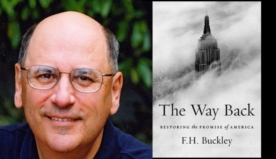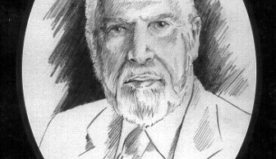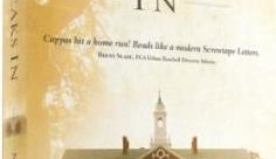


How Do You See the Future?
Left to himself, man only shows degeneration. To look at man’s future in terms of sin alone, however, misses not only the transforming power of the gospel by the Holy Spirit, but also the context of the developing Kingdom of God.

“First the Blade”
No more than we can plant grain and then expect the harvest at once, can we expect quick or immediate results in the growth of God’s Kingdom. If we plant grain, we must cultivate it, often water it, tend to the field, and, only after much labor, reap a harvest.

The Lethally Deep Roots of Politicized Medicine (17)
Philosophy professor Dr. Michael Gendre has made the first fifteen articles in this series required reading in his Ethics and Society class. His interest in Dr. Kishore’s case is more than academic, however.

A Time for Honor: What I’ve Learned from R. J. Rushdoony and Other Giants of the Faith
Being a young person in America, it’s easy to see that my generation and those following it are marked by a lack of reverence. Honor for the aged does not come easily for us; our sins of pride and entitlement are far too deeply engrained to permit such reverence.

Social media has become a new arena for sharing a Biblical worldview, and while valuable and pertinent, it misses the mark if that is where it stops. If we want to see our culture impacted with a full-orbed Biblical faith, we need to step away from our internet connections and find some people nearby and interact with them face-to-face.

This is a book chock-full of charts and statistics, scientific findings and scientific speculations, political and societal observations, and short-term prognostications that seem to have missed some very big boats. But the real business at hand, here, is an attempt to find purely secular, purely this-worldly solutions to a major problem that the author defines in purely secular, purely this-worldly terms.

